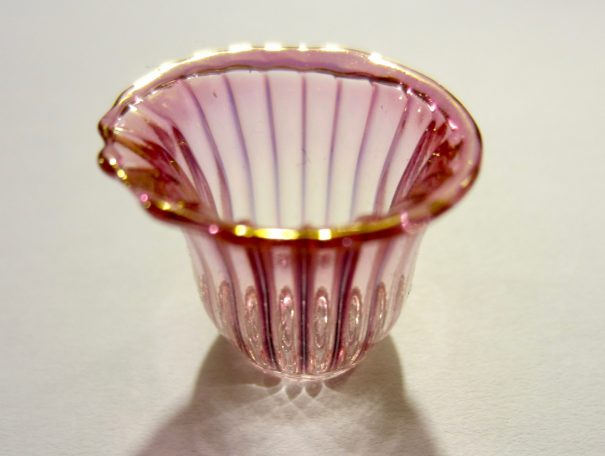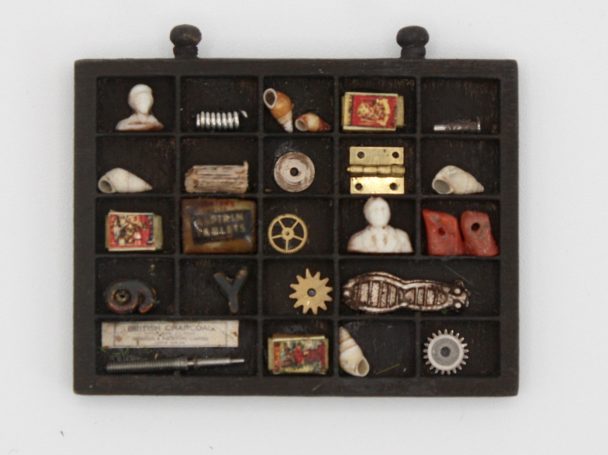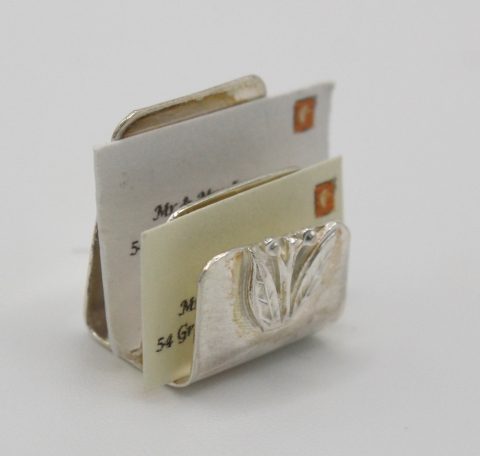Research Project
The Miniature Antidotes exhibition arose out of a research project carried out by Dr Dalia Iskander (Associate Professor in Medical Anthropology), called Crafting Small, Grasping Big (2022-24), that explored the nature and effects of miniature craft in the UK.
Based on two years of participant observation with around 40 artists and industry experts across the UK, Dalia explored how and why people make miniatures such as dollshouses, dioramas, dolls and other scaled-down objects. For many, this craft practice has numerous positive effects on their lives, including benefiting their physical, psychological, emotional, social and economic health. As this exhibition shows, it leads makers to grasp and transform the world in ways that serve as an antidote to different ills, ranging from grief and depression to discrimination and marginalisation.
The objects on display are mostly made by participants from the study, but some also come from the UCL Ethnography Collection, or Dalia’s private collection. Together, they showcase the diversity and richness of miniatures and the effects this craft practice has on makers and wider society.
Thank you to all the participants who took part in this project. Thanks also to Delphine Mercier (Curator of the UCL Ethnography Collection) and student volunteers, Sihan Cao, Chen Wang, Rachel McGraw, Lauren Mullen and Mingyan Ji.
Explore research themes
Imagination & Play
Makers craft miniature worlds that both draw on real life and are imbued with imagination and fantasy. They rely on play, humour and surprise to observe, realise or create new worlds. Makers describe how they are addicted to making miniature worlds as an antidote to the mundane, laborious and difficult demands of everyday life, offering acceptance, freedom and hope.
Awe & Wonder
While many people feel awe looking at miniatures, for makers too, crafting miniatures is awe-inspiring. Working in small-scale brings them closer to experiencing and appreciating the magnificence, wonder and beauty in the world, in order to re-present its essence in miniature form. Experiencing awe is an antidote to feelings of boredom, depression and loss.
Mimesis & Transformation
For many miniature artists, their work affords them the opportunity to create mimetic versions of the real world, as it is or as they would like it to be – dolls that mimic people, buildings that mimic homes. Creating 'model' people, places and possessions that showcase belonging, diversity and tradition, serves as an antidote to displacement, discrimination and detraditionalization.
Nostalgia & Memory
Reminiscing has been shown to increase the sense that aspects of life are precious, meaningful and have worth. Nostalgic art can also forge connections with others. For miniaturists, capturing the nostalgia of places that draw on personal memory in 3D is cathartic and reparative - a corrective to feelings of disruption, insecurity and destruction.
Chaos & Complexity
Many makers emphasise how crafting miniatures demands ‘looking at things in new ways’, in order to comprehend their complexity. This intense focus on details, relationships and connections across scales helps artists find order in chaos and pattern in disarray - an antidote to feelings of despair, mania and cognitive decline.
Hand-Work & Health-Work
Working hands-on with materials brings pleasure and joy. Perseverance and refining skills are hugely satisfying and a counterpoint to idleness, stress and cognitive dysfunction. Hand-work is also a vital source and marker of value. Demand for craftsmanship has allowed many to re-enter the labour market after redundancy, illness, or retirement, providing an antidote to economic marginalisation.
Dalia Iskander
Dalia is an Asssociate Professor in Medical Anthropology at University College London. She is interested in the connection between creativity, craft, hand-work and health. Her latest project, Crafting Small, Grasping Big, explores miniature craft practices in the UK. She has been working with a range of people who make dollshouses and other miniatures in order to better understand the social, political, economic, affective and technological relations that shape this craft, and the impact the practice has on makers lives, social relations and wider society.

We need your consent to load the translations
We use a third-party service to translate the website content that may collect data about your activity. Please review the details in the privacy policy and accept the service to view the translations.








